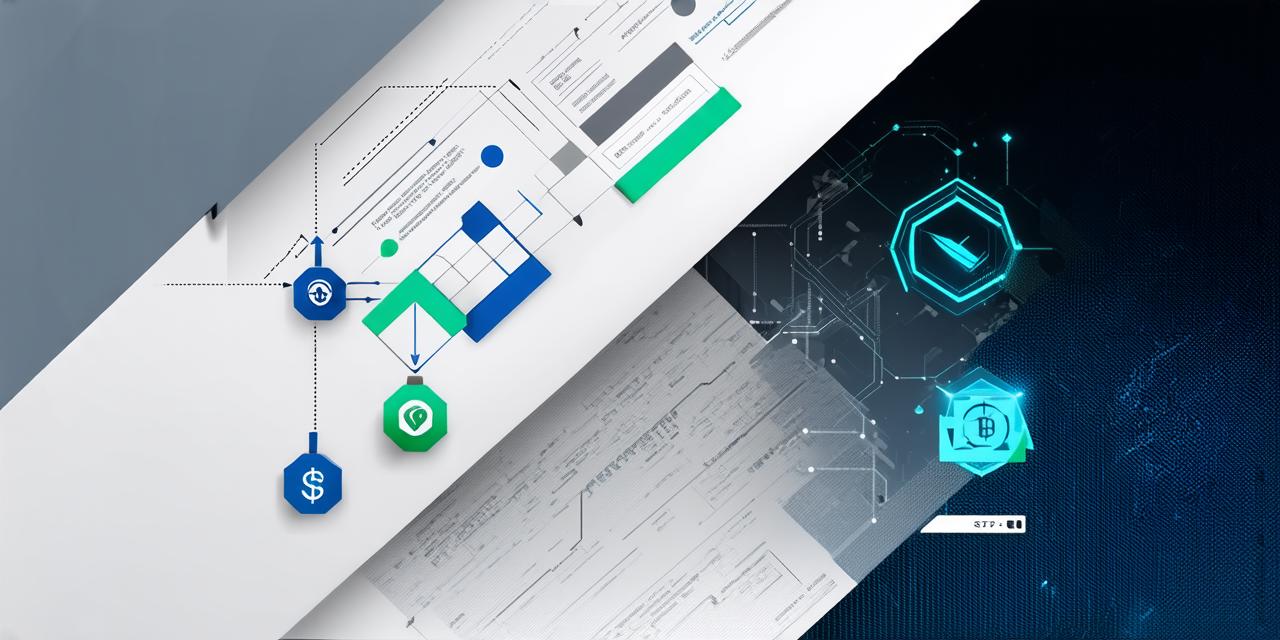Blockchain technology is an innovative digital ledger that records transactions in a secure and transparent manner. It allows for decentralized control of data, eliminating the need for intermediaries such as banks or government agencies.
What is a Blockchain?
A blockchain is a digital ledger that records transactions in a secure and transparent manner. It is made up of blocks, which contain information about the transaction and a cryptographic hash of the previous block. This creates an immutable and tamper-proof record of all transactions on the network.

How does a Blockchain work?
A blockchain works by using a consensus algorithm to validate new transactions and add them to the ledger. The most commonly used consensus algorithms are proof-of-work (PoW) and proof-of-stake (PoS). In PoW, miners compete to solve complex mathematical problems to validate transactions and earn rewards in the form of cryptocurrency. In PoS, validators are chosen based on the amount of cryptocurrency they hold, and they are rewarded for their contribution to the network.
Potential Applications of Blockchain Technology
Blockchain technology has the potential to revolutionize many industries, including finance, healthcare, and supply chain management. Here are some examples:
-
Finance: Blockchain can be used to create decentralized financial systems that eliminate the need for intermediaries such as banks. This allows for faster and more secure transactions, and can also reduce costs for both individuals and businesses.
-
Healthcare: Blockchain can be used to create a secure and transparent digital ledger of medical records, allowing patients to have full control over their data and eliminating the need for intermediaries such as insurance companies.
-
Supply chain management: Blockchain can be used to create a transparent and secure ledger of supply chain information, allowing businesses to track products from production to delivery and ensuring that they are ethically sourced.
Case Studies and Personal Experiences
One example of the potential of blockchain technology is the use of smart contracts in real estate transactions. Smart contracts allow for the automation of real estate transactions, eliminating the need for intermediaries such as lawyers and real estate agents. This can reduce costs and increase efficiency for both buyers and sellers.
Another example is the use of blockchain technology in the healthcare industry to create a secure digital ledger of medical records. This allows patients to have full control over their data and eliminates the need for intermediaries such as insurance companies. This has been successfully implemented in countries such as Estonia, where all citizens have access to their own digital health records.
Research and Experiments
There have been many research projects and experiments conducted on blockchain technology. For example, a study by Deloitte found that 86% of financial institutions believe that blockchain technology has the potential to revolutionize the banking industry. Another study by Accenture found that blockchain technology can reduce supply chain costs by up to 50%.
Expert Opinions and Quotes
“Blockchain is not just a technology, it’s a philosophy. It’s about creating a system where everyone has equal access to information and the ability to make decisions.” – Andreas Antonopoulos, author and blockchain expert.
“The potential of blockchain technology is enormous, and it has the power to transform many industries.”
